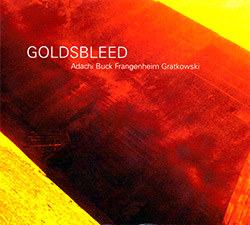
Creative Sources core artist double bassist Alexander Frangenheim met Zeitkratzer multi-reedist Frank Gratkowski, The Necks drummer Tony Buck, and free improvising vocalist Adachi Tomomi, in one of a series of concerts at the loft Studio Boerne 45 in Berlin in 2015; this, their first meeting, yielded an impressive flow of creative and far-ranging collective dialog.
Out of Stock
Quantity in Basket: None
Log In to use our Wish List
Shipping Weight: 3.00 units
Sample The Album:
Adachi Tomomi-voice
Tony Buck-percussion
Alexander Frangenheim-double bass
Frank Gratkowski-reeds
Click an artist name above to see in-stock items for that artist.
UPC: 5609063404708
Label: Creative Sources
Catalog ID: cs470
Squidco Product Code: 25017
Format: CD
Condition: New
Released: 2017
Country: Portugal
Packaging: Cardboard Gatefold
Recorded live at Studio Boerne 45, in Berlin, Germany, on October 13th, 2015, by Antonio Pulli.
"[...] Goldsbleed seems to suggest a new layer of musical interaction from Alexander Frangenheim: In fact, he states that this performance from October 2015 arose from a period during which he consciously decided to meet & perform with more Berlin musicians. Recalling Frangenheim's work with Isabelle Duthoit, particularly Light air still gets dark (which was recorded a couple of months later), Goldsbleed involves vocalist Tomomi Adachi, with whom I was not previously familiar (and whose name order is reversed in some sources). However, whereas much of Frangenheim's music on Creative Sources to date involves sounds at the edge of audibility, including his work with Duthoit (& especially on their previous album Kochuu, recorded in 2014, which suggests another Japanese connection), Goldsbleed adopts a more traditional dynamic range. (It's also, unusually for Creative Sources, not designed by Carlos Santos. And apparently the title relates to a play of light that Frangenheim experienced, but the included text doesn't illuminate the "nonsense" track titles.)
As an improvised quartet album with (non-semantic) vocalist, it thus appears in rather close relation to Eye of the Moose, as both also involve space & open textures, if not extremes of quietness. Goldsbleed adds Frank Gratkowski & Tony Buck to Adachi & Frangenheim, thus using horn rather than guitar (as on Eye of the Moose, which retains more of a metallic shimmer), and so involves two rather famous musicians (who had already recorded together on Skein). Moreover, I hadn't really noticed before, having "discovered" his music via Creative Sources, but Frangenheim had been a member of Zeitkratzer with Gratkowski Ñ and Zeitkratzer is a rather assertive group, not so concerned with edges of audibility.
The sense of sequence confirmed by Goldsbleed is also somewhat disorienting, in that Underwater Music (which I discussed in October as an album whose concerns had already been further explored, at least by Ernest Rodrigues, elsewhere) is actually the most recently recorded Frangenheim album available at the moment. There one finds more in the way of classical etudes, almost a quasi-Webernian (with rather more expansiveness) sense of string trio (and so an album I should have featured more at the time). Goldsbleed, at least if one can accommodate a free vocalist into standard conceptions (& I retain a strong interest in that direction), is a more traditionally twenty-first century "free jazz" album in its sense of rhythm, energy, drama, etc. However, despite that the vocalist (who also uses some modest electronics) is the unknown & so the draw, the album sometimes seems dominated by the rather conventional horn trio, such that the voice might be silent or intertwine quietly in the background. The vocalist is the quartet member most likely to defer, in other words. (The background vocals have their own charm, somewhat reminiscent of those on Yad, although not so urban per se.)
So whereas the participation of Gratkowski & Buck in a project such as this can only be welcomed, Goldsbleed is nothing special as a Gratkowski or Buck album: Those two seem rather conventional here, as does Frangenheim himself at times. That said, when the voice really does take the foreground, the interactions can be dazzling, particularly with the horn trailing & energizing: There are squeaky birds, subtly random banging, quirky ostinati, maybe a funky "tribal" groove across layering concepts for a jungle setting within which human activity can seem to fade into a windswept past. The rhythm team doesn't seem to push much on its own, though. Goldsbleed thus presents as something of a tapestry for the concerns of its time, particularly if (as I do) one includes vocals as such a concern, and if not as a highlight (or perhaps "out of time" anyway), at least as an interesting point of repose in the ongoing articulations of both Creative Sources as a label and Frangenheim as an improvising bassist."-Todd McComb's Jazz Thoughts
Get additional information at Todd McComb's Jazz Thoughts
Artist Biographies
• Show Bio for Adachi Tomomi "Adachi Tomomi (family name is ADACHI), born in Kanazawa, Japan in 1972, is performer, composer, sound poet, installation artist, occasional theater director. He studied philosophy and aesthetics at Waseda University in Tokyo. He has played improvised music with voice, live electronics and self-made instruments. He had composed works for his own group "Adachi Tomomi Royal Chorus" which is a punk-style choir. He has performed contemporary music: vocal, live-electronics or performance works by John Cage, Cornelius Cardew, Christian Wolff, Tom Johnson, Dieter Schnebel, TAKAHASHI Yuji, YUASA Joji and Fluxus including world premiere and Japan premiere as Cage's "Variations VII," "Europera 5," and "Waterwalk". He is the only performer of sound poetry in Japan and has performed Kurt Schwitters' "Ursonate" for the first time in Japan. He has made several sound installations and original instruments (e.g."Tomomin", his hand made electric instrument is familiar with many musicians). In the field of theater music, he has collaborated with some experimental theaters and dancers. He also has organized many concerts which picks up experimental music, sound art, collaboration work and inter-disciplinary performance in Japan and Germany, include concerts with Chris Mann, Trevor Wishart, Nicolas Collins and STEIM in Japan. He founded "Ensemble for Experimental Music and Theater" with his students in Tokyo in 2011, the group is working for pieces by Fluxus and recent conceptual composers. He has performed with numerous musicians, dancers and film makers including Jaap Blonk, Nicolas Collins, Carl Stone, TAKAHASHI Yuji, SAKATA Akira, ICHIYANAGI Toshi, TANAKA Yumiko, dj sniff, Jerome Noetinger, SUZUKI Akio, Alessandro Bosseti, FURUDATE Tetsuo, Jennifer Walshe, Annette Krebs, Dickson Dee, Zbigniew Karkowski, Johannes Bergmark, Erhart hirt, MAKIGAMI Koichi, Butch Morris, Jon Rose, OTOMO Yoshihide, ITOH Kim, Monika Klingler, IIMURA Takahiko, ISHIDA Takashi. He has presented his works in Japan, Europe, U.S., Australia and other asian countries at many kinds venues include Tate Modern, IRCAM/Centre Pompidou, Haus der Berliner Festspiele, Akademie der Kuenste Berlin, Waker Art Center, STEIM, Experimental Intermedia, ZKM, Merkin Hall, Ontological-Hysteric Theater, Roulette, Tonic, The National Museum of Art Osaka, Super Deluxe, La Mama Theatre Melbourne, Anthology Film Archives, 21th Century Museum of Contemporary Art Kanazawa and Vooruit. He has given lectures at Tama Art University, Yotsuya Art Studium, School of the Art Institute of Chicago, Mills College, Bard College and London College of Communication. As a critic, he has written about visual art, music and performance art on papers and magazines. He had participated in an art theory bulletin "Method" 2000-2001. He started visual art (video and installation) in 2003. He stayed in New York 2009-2010 as an Asian Cultural Council grantee. Also he was awarded the DAAD invited composer for Berlin 2012. His CDs were released from Naya Records, Tzadik and Omegapoint. Recently, he is focusing his activities on solo performance (with voice, sensors, computer, self-made instruments), sound poetry (especially to the unknown great Japanese sound poetry tradition), video installation and workshop style big ensemble with non-professional voices and instruments. Currently living in Berlin and Tokyo." ^ Hide Bio for Adachi Tomomi • Show Bio for Tony Buck "Born in Sydney in 1962, Tony is regarded as one of Australia's most creative and adventurous exports, with vast experience across the globe. He has been involved in a highly diverse array of projects. Apart from The Necks, he is probably best known as leader of hardcore/impro band PERIL. Early in his musical life, after having graduated from the New South Wales Conservatorium of Music, he became very involved in the jazz scene in Australia, often touring with visiting international artists such as Vincent Herring, Clifford Jordan, Mickey Tucker, Branford Marsalis and Ernie Watts, as well as Australians Mark Simmonds, Paul Grabowsky, The catholics, Sandy Evans and Dale Barlow. Following time spent in Japan, where he formed PERIL with Otomo Yoshihide and Kato Hideki, Tony moved to Europe, and has involved himself in many projects there, including the development of new "virtual" MIDI controllers at STEIM in Amsterdam. Tony has played, toured or recorded with, among others, Jon Rose, Nicolas Collins, Tenko, John Zorn, Tom Cora, Phil Minton, Haino, Switchbox, The Machine for Making Sense, Ne Zhdall, The EX, Peter Brotzmann, Hans Reichel, The Little Red Spiders, Subrito Roy Chowdury, Clifford Jordan, Kletka Red, Han Bennink, Shelley Hirsch, Wayne Horvitz, Palinckx, and Ground Zero." ^ Hide Bio for Tony Buck • Show Bio for Alexander Frangenheim "Born in Wuppertal, he studied sculpture at the academy of fine arts in Stuttgart and at the same time classical Doublebass with Reinald Schwarz, soloist of Stuttgart Philharmonics. Having encountered experimental music in his youth, beside classical playing he soon ventured into free improvisation as well as working with graphic notations in the ensemble of composer Klaus Fessmann, who holds a professorship at Salzburg Mozarteum. After having met Günter Christmann in the early 90s, who became a close friend over the years, a grant offered the possibility to go to London, where he finally was able to explode into a most intense period of sessions, collaborations, concerts and recording sessions, this all with help by John Russell, Chris Burn and John Butcher. Back in Stuttgart he was asked to teach experimental music at the academy of fine arts Stuttgart, which he did for a period of ten years and which led him to extended sound and performance explorations in collaboration with his students. He continued to organize the festival concepts of doing - Interaktion Tanz Musik (1992 - 2003) and, after an intense trip through many european countries meeting dancers for free improvisations and an invitation to the 5th Composers Choreographers Exchange (Southbank Center London), he was co-founding the production center for dance and performance Stuttgart. Being the head of this association for three years and after the festival of concepts of doing 2003, he pushed these structures aside for regaining breath and new freedom and inner engagement in life and arts. At the same time this moment was accompanied by his last days in ensemble zeitkratzer, which he was member of since its beginning in 1997 (performances of famous MMM by and with Lou Reed as well as music by alva noto, Merzbow, Lee Ronaldo, Elliott Sharp, DJ's a.o.). 2005 saw him establishing himself in a space in Berlin to seek new projects. Since then he has recorded three cds, created the music for the experimental film "Lupinen löschen" by Sabine Schöbel, which was shown at the Berlinale 2007, and started to work with analog electronics on the acoustic double bass as well as on an electric one, introducing this to his collaborations with dance. He played in groups... trio with Jim Denley and Steve Noble; duo with Phil Durrant (cd); quintet with Evan Parker, Phil Wachsman, Thomas Lehn, Roger Turner; duo with Günter Christmann (cd); "Ein Quartett" with Bieler-Wendt, Kolkowski, Zimmerlin; trio with Chris Burn and Axel Dörner. Projects with Günter Christmann: Sextett Vario 34 (cd) und "con moto" (music, dance, sound poetry, film) with David Zambrano, Urs Leimgruber, Fine Kwiatkofski, Elke Schipper (dvd). Concerts with... Paul Lovens, John Butcher, Phil Minton, Derek Bailey, Sven-Ake Johannson, David Moss, John Russell, Johannes Bauer, LeQuan Ninh, Dietmar Diesner, LaDonna Smith, Malcolm Goldstein, Fred Frith, Vinko Globokar, Barry Guy, Torsten Müller, Carlos Zingaro, Fred van Hove, Urs Leimgruber, Mats Gustafsson, Dorothea Schürch, Herb Robertson, Alberto Braida, Michael Griener, Yumiko Tanaka a.o. Intense work with dancers in diverse performing and rehearsing situations. Collaborations with Julyen Hamilton, Vera Mantero, Benoit Lachambre, Ingo Reulecke, Josè Luis Sultàn, Mark Tompkins, Junko Wada, Fine Kwiatkofski, Regina Baumgart, David Zambrano, Sasha Waltz, Katie Duck, Joachim Schlömer, Thomas McManus, Nigel Charnock, Xavier Le Roy, Frans Poelstra, Virpi Pakhinen, Russell Maliphant, Anzu Furukawa, Pal Frenak, Anna Huber, Andreas Müller, Astrid Endruweit, Jennifer Lacey, Lin Yuang Shang. concepts of doing. Between 1992 and 2003 he organized the festival "concepts of doing - Interaktion Tanz Musik" which became an important european plattform for the exchange of the arts inviting many notable artists for free collaborations during 4 days. (Please see: www.concepts-of-doing.de). cd: "screen. Festival concepts of doing 1999" mit Yoshihide, Turner, Leimgruber, Schürch, Parkins, Newton, Frangenheim. Critics: "mikrotonale Edelsteine" (Markus Müller, Jazzthetik), "deliciously subversive" (Cadence), "music straight from the dynamo" (The Wire), "Frangenheim uses extended string techniques Gidon Cremer supplied for Luigi Nono" (The Wire). Lives in Berlin since 2005. In preparation for creative space for 2009, which will allow him to continue his work with dance and other media. Projects: trio with Chris Burn and Axel Dörner; quartet with Thomas Lehn, Le Quan Ninh, Frederic Blondy; duo with Günter Christmann /as well as other formations; trio with Floros Floridis and Ray Kaczynski; cds in prep: quartet with Moss/Bauer/Tanaka, quartet with Turner/Wachsman/Pat Thomas. performance project "streugut" together with Clausen, Reulecke, Rudstrom, Simon." ^ Hide Bio for Alexander Frangenheim • Show Bio for Frank Gratkowski "Frank Gratkowski, saxophone. Born in Hamburg, 1963. Started playing the saxophone at 16 and, following a period at the Hamburg Conservatory (Hamburger Musikhochschule), moved in 1985 to study at the Cologne Conservatory of Music with Heiner Wiberny, graduating in 1990. Further studies with Charlie Mariano, Sal Nistico and Steve Lacy. Frank Gratkowski has been working as a soloist in various international formations (Grubenklang Orchester, Klaus Koenig Orchester, Musikfabrik NRW, Tony Oxley Celebration Orchestra, Bentje Braam, BikBentBraam, All Ears, Zeitkratzer, WDR Big band, etc.). Since 1990 he has been giving solo performances throughout Europe, Canada and USA. With his first solo program, he was a 1991 prizewinner in the Musik Kreativ contest. The release of the solo CD "Artikulationen" followed the same year and a new one "Artikulationen II" in 2002. Since 1992 he has been working in a duo with the pianist Georg Graewe (CD "VicissEtudes"). The duo is often extended through the participation of different additional musicians, such as drummer Paul Lovens (CD "Quicksand") and bassist John Lindberg (CD "Arrears"). In 1995 he founded the "Frank Gratkowski Trio" with Dieter Manderscheid (Germany), bass, and Gerry Hemingway (USA), drums, (CDs "Gestalten" and "The Flume Factor" ). In 2000 the trio has been extended to a quartet by Dutch trombonist Wolter Wierbos (CDs "Kollaps", "Spectral Reflections", "Facio" and "Le Vent et la Gorge"). Since 2003 also appearing as a Double Quartet plus Tobias Delius, Herb Robertson, Wilbert DeJoode and Michael Vatcher. In 2005 he got the SWR Jazzprize. In 1999 the duo with the Italian trombonist Sebastiano Tramontana has been formed and since 2001 Frank Gratkowski has been performing with a trio including Wilbert De Jode (NL) on bass and Achim Kaufmann (D) on piano (CDs "Kwast" and "Unearth"). Since 2006 he's working with the Trio Gratkowski / Brown / Winant (CDs "Wake" and "Vermilion Traces/Donaueschingen 2009"). He is also a co-leader / composer of the Multiple Joy[ce] Orchestra and got a commission to compose for the ensemble Apartment House by "November Music " (Den Bosch NL) and the "Huddersfield Comtemporary Music Fesitival" (England) in 2009. Further actual projects are Fo[u]r Alto, a saxophone ensemble dedicated to microtonal music and "Artikulationen E" a solo program for saxophone with 8 channel live electronic. Frank Gratkowski played on nearly every German and on numerous international Jazz and contemporary music Festivals including Vancouver, Toronto, Chicago, New York, Seattle, Quebec, Les Mans, Muelhuus, Groeningen, Nickelsdorf, Barcelona, Lithuania, Warsaw, Zagreb, Prague, Bratislava, Sofia, Bucharest, Odessa and Roma, Huddersfield, London. He has been teaching saxophone and ensembles at the Cologne, Berlin and Arnhem Conservatory of Music and is giving workshops all around the world. Furthermore he has performed with Robert Dick, Phil Wachsmann, Radu Malfatti, Herb Robertson, Marcio Mattos, Eugenio Colombo, Peter Kowald, Ray Anderson, Michael Moore, Ken Vandermark, Greg Osby, Kenny Wheeler, Louis Sclavis, John Betsch, Jane Ira Bloom, Connie and Hannes Bauer, Xu Fengxia, James Newton, Muhal Richard Abrams, John Lindberg, Michael Formaneck, Ernst Reijseger, Fred van Hove, Theo Jörgensmann, Phil Minton, Peter Brötzmann, Mark Dresser, Mark Feldman, Hamid Drake, Michiel Braam, Han Bennink, Mal Waldron, Misha Mengelberg a.m.o." ^ Hide Bio for Frank Gratkowski
7/7/2025
Have a better biography or biography source? Please Contact Us so that we can update this biography.
7/7/2025
Have a better biography or biography source? Please Contact Us so that we can update this biography.
7/7/2025
Have a better biography or biography source? Please Contact Us so that we can update this biography.
7/7/2025
Have a better biography or biography source? Please Contact Us so that we can update this biography.
Track Listing:
1. Black Tree Blackly 8:44
2. Foam To Wheat 6:41
3. Grey Toe Frisco Seal 11:37
4. Hysterical Elastics 9:31
5. Goldsgreen Curtain Of Wax 10:33
Creative Sources
Improvised Music
Free Improvisation
European Improvisation and Experimental Forms
Unusual Vocal Forms
Quartet Recordings
Search for other titles on the label:
Creative Sources.


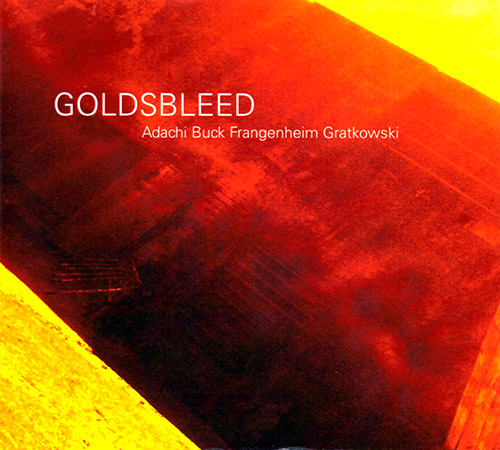
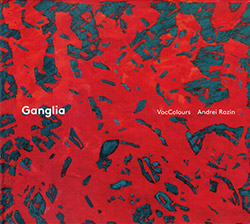
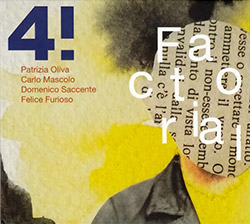
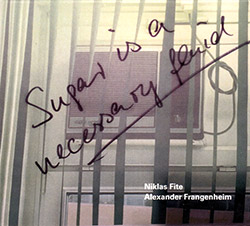
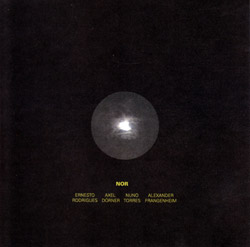
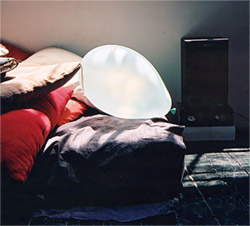
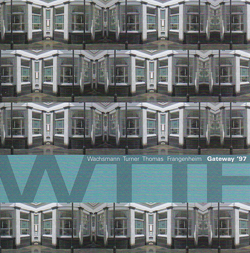

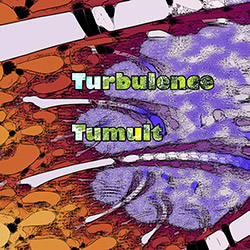
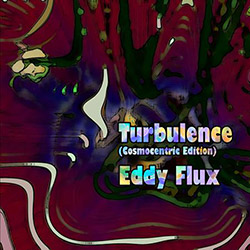

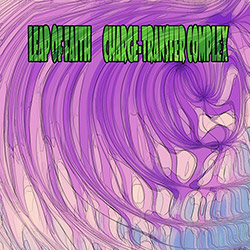

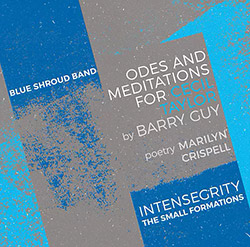
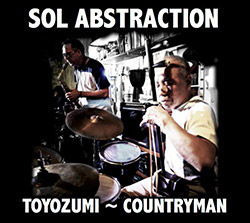

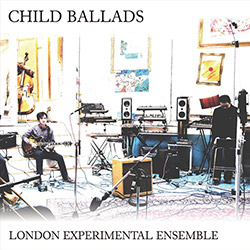
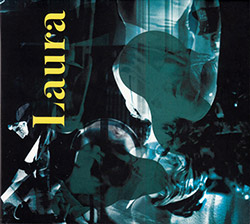
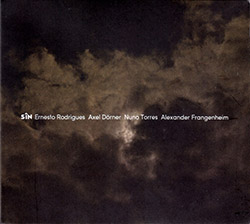







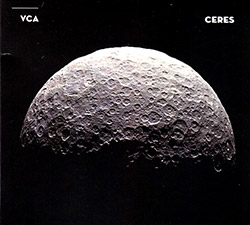






![+DOG+: The Light Of Our Lives [2 CDs]](https://www.teuthida.com/productImages/misc4/36009.jpg)


![Parker, Evan / Jean-Marc Foussat: Insolence [VINYL]](https://www.teuthida.com/productImages/misc4/36398.jpg)










![Deupree, Jerome / Sylvie Courvoisier / Lester St. Louis / Joe Morris: Canyon [2 CDs]](https://www.teuthida.com/productImages/misc4/36404.jpg)


![Eternities: Rides Again [CASSETTE]](https://www.teuthida.com/productImages/misc4/36247.jpg)

![Lopez, Francisco: Untitled (2021-2022) [2 CDs]](https://www.teuthida.com/productImages/misc4/36438.jpg)




![Eventless Plot | Haarvol: The Subliminal Paths [CASSETTE + DOWNLOAD]](https://www.teuthida.com/productImages/misc4/36232.jpg)







![Eventless Plot | Francesco Covarino: Methexis [CASSETTE + DOWNLOAD]](https://www.teuthida.com/productImages/misc4/36231.jpg)



![Das B (Mazen Kerbaj / Mike Majkowski / Magda Mayas / Tony Buck): Love [VINYL]](https://www.teuthida.com/productImages/misc4/36329.jpg)



![Hemphill Stringtet, The: Plays the Music of Julius Hemphill [VINYL]](https://www.teuthida.com/productImages/misc4/36409.jpg)









![Money : Money 2 [2 CDs]](https://www.teuthida.com/productImages/misc4/35894.jpg)




![Klinga, Erik: Elusive Shimmer [VINYL]](https://www.teuthida.com/productImages/misc4/36258.jpg)
![CHANGES TO blind (Phil Zampino): Volume 9 - I Wave on a Fine Vile Mist [CD + DOWNLOAD]](https://www.teuthida.com/productImages/misc4/36061.jpg)

![Wallmart / Rubbish: Asset Protection [split CD]](https://www.teuthida.com/productImages/misc4/35900.jpg)


![+Dog+: The Family Music Book Vol. 5 [2 CDs]](https://www.teuthida.com/productImages/misc4/35897.jpg)
![Kuvveti, Deli : Kuslar Soyledi [CASSETTE w/ DOWNLOAD]](https://www.teuthida.com/productImages/misc4/36107.jpg)

![Nakayama, Tetsuya: Edo Wan [CASSETTE w/ DOWNLOAD]](https://www.teuthida.com/productImages/misc4/36105.jpg)

![Brown, Dan / Dan Reynolds: Live At The Grange Hall [unauthorized][CASSETTE]](https://www.teuthida.com/productImages/misc4/36245.jpg)








![Palestine, Charlemagne / Seppe Gebruers: Beyondddddd The Notessssss [VINYL]](https://www.teuthida.com/productImages/misc4/36206.jpg)
![Palestine, Charlemagne / Seppe Gebruers: Beyondddddd The Notessssss [NEON GREEN VINYL]](https://www.teuthida.com/productImages/misc4/36207.jpg)

![Laubrock, Ingrid: Purposing The Air [2 CDs]](https://www.teuthida.com/productImages/misc4/35639.jpg)

![Yoko, Ono / The Great Learning Orchestra: Selected Recordings From Grapefruit [2 CDs]](https://www.teuthida.com/productImages/misc4/35841.jpg)









![Zorn, John / JACK Quartet: The Complete String Quartets [2 CDs]](https://www.teuthida.com/productImages/misc4/35609.jpg)

![Lonsdale, Eden: Dawnings [2 CDs]](https://www.teuthida.com/productImages/misc4/35480.jpg)



![Sorry For Laughing (G. Whitlow / M. Bates / Dave-Id / E. Ka-Spel): Rain Flowers [2 CDS]](https://www.teuthida.com/productImages/misc4/35985.jpg)

![Rolando, Tommaso / Andy Moor : Biscotti [CASSETTE w/ DOWNLOADS]](https://www.teuthida.com/productImages/misc4/36106.jpg)


![Electric Bird Noise / Derek Roddy: 8-10-22 [CD EP]](https://www.teuthida.com/productImages/misc4/35970.jpg)








![Elephant9 : Mythical River [VINYL]](https://www.teuthida.com/productImages/misc4/34624.jpg)



![Elephant9 with Terje Rypdal: Catching Fire [VINYL 2 LPs]](https://www.teuthida.com/productImages/misc4/35355.jpg)
![Deerlady (Obomsawin, Mali / Magdalena Abrego): Greatest Hits [VINYL]](https://www.teuthida.com/productImages/misc4/34876.jpg)







![Surplus 1980: Illusion of Consistency [CD]](https://www.teuthida.com/productImages/misc4/35069.jpg)
![Staiano, Moe: Away Towards the Light [VINYL + DOWNLOAD]](https://www.teuthida.com/productImages/misc4/35037.jpg)
![Coley, Byron: Dating Tips for Touring Bands [VINYL]](https://www.teuthida.com/productImages/misc4/17906.jpg)

![Lost Kisses: My Life is Sad & Funny [DVD]](https://www.teuthida.com/productImages/misc4/lostKissesDVD.jpg)